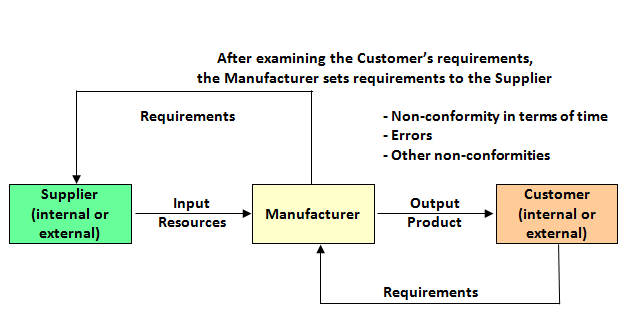The supplier’s primary responsibility consists in transferring the goods to the buyer and receiving money for them. It is worth noting that this process involves a bunch of pitfalls and is associated with several legal aspects. The delivery process is governed by the provisions of § 3 Chapter 30 of the Civil Code “Delivery of Goods”, as well as § 1 Chapter 30 of the Civil Code devoted to the issues of purchase and sale, as delivery may be considered a specific instance of sale. Apart from the other things, Chapter 22 of the Civil Code “Discharge of Obligations” may be used to settle disputes.
Supplier’s responsibilities:
- The supplier transfers (ships) the products to the buyer or to the recipient of the goods. NB: it is necessary to designate the recipient of the goods or specify in detail the form of shipping orders (indicating the signatory of the document and the details to be provided). Failure to specify all the details may result in disputes regarding the legality of your deeds.
- The supplier delivers the goods to the designated place or transfers the goods to the shipper / delivery service. At this point, it is necessary to document the transfer of title and specify the party responsible for the goods from that moment on. In case of international deals, business people heavily rely on INCOTERMS. Incidentally, INCOTERMS may be used for deliveries within Russia (as provided in Clause 5, Article 421 of the Civil Code). The place that you indicate in the contract will be decisive in establishing the court to consider your claim. In accordance with Clause 4, Article 36 of the Arbitration Procedural Code of the Russian Federation, the claim shall be accepted in the place where the contract is performed.
- The goods must be delivered in a timely manner. As stated in Article 506 of the Civil Code, due performance of this provision serves as foundation for the partners’ successful relationship.
- The supplier commits to deliver a certain quantity of goods. Moreover, the goods must be delivered in due quality and assortment. This is due to the fact that any buyer expects to receive the specific goods that have been ordered. Many problems arise when the buyer or the supplier fail to prove the very fact of delivery. This is often the case if the contract has not been drawn up properly creating a bunch of problems for the partners.
Example:
a farm (the seller) committed to transfer products to another farm (the buyer). To prove the fact of transfer, the claimant (the seller) presented a delivery note and attorney letter for the goods. However, the defendant stated that it had not received any goods and tried to prove this statement by arguing that it used to render warehousing services to the claimant on several occasions. Nonetheless, the court considered this line of defence rather weak.
Reception of goods is usually subjected to several control stages.
Stage 1: the goods is entered in the weight book used to register the fact of delivery by the supplier of the goods to the company of the buyer.Stage 2: the goods is subjected to another inspection in the presence of the supplier.
Stage 3: the company’s accounting office draws up an acceptance certificate reflecting the exact data on the products received. All the documents above are supposed to prove the receipt of the goods by the buyer.
 Lyudmila Shusterova, Director for Strategic Development at BDO Unicon Outsourcing:
Lyudmila Shusterova, Director for Strategic Development at BDO Unicon Outsourcing: “Outsourcing specific services may pose certain risks to any company. This does not concern recruitment of a cleaning contractor or an office furniture supplier. This concerns the providers whose area of responsibility may affect your relationship with the customer: are you willing, for instance, to sacrifice a lucrative contract because of a contractor’s error? How much will the defaulted obligations cost you?
In this case, operational risks may be managed with the help of a service level agreement (SLA) – a written agreement concerning the level of the services to be provided. As a rule, this document includes requirements for contractor’s day-to-day operations: period for responding to your letters and calls (this is particularly relevant for providers from the other regions with time differences), deadlines for processing your request when you are receiving the goods (in case of deliveries), frequency of reports: daily, weekly, or monthly, acceptable number of errors, possible extension period for performing an obligation, conditions for imposing penalties.
If you are unhappy with a provider, you can always find a substitute, but this process has its challenges: each time, your company will need to go through the adaptation period, brief a new team on your business processes, etc. This is why I would recommend that you have a list of “substitutes” that will enable you to substitute your provider without much pain. For instance, you announced a tender a year ago and made a short list of the best-fitting companies. When you select the winner, try to keep contact with the other companies whose offers looked appealing. Discuss the possibility of resuming negotiations after some time. If the supplier that you chose proves unsuitable, you won’t need to announce a new tender, compare new offers, arrange a dozen of meetings, etc. You are already familiar with the price policies and employees of certain companies who in turn are aware of the specific features of your business and your requirements.”
Conclusion:
The only thing that may guarantee a just-in-time delivery is a good delivery contract. The more thorough it is, the better. This will help you in the future to confidently defend your position in conversations with the supplier itself, as well as to save you time and money in courts.Source: bgoal.ru



